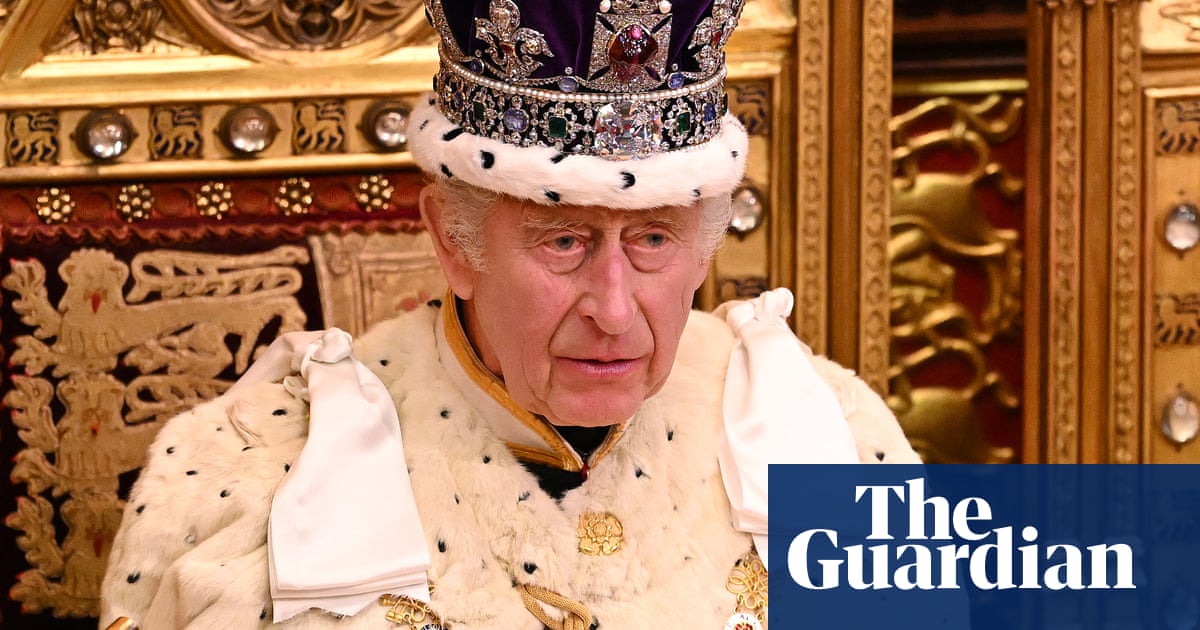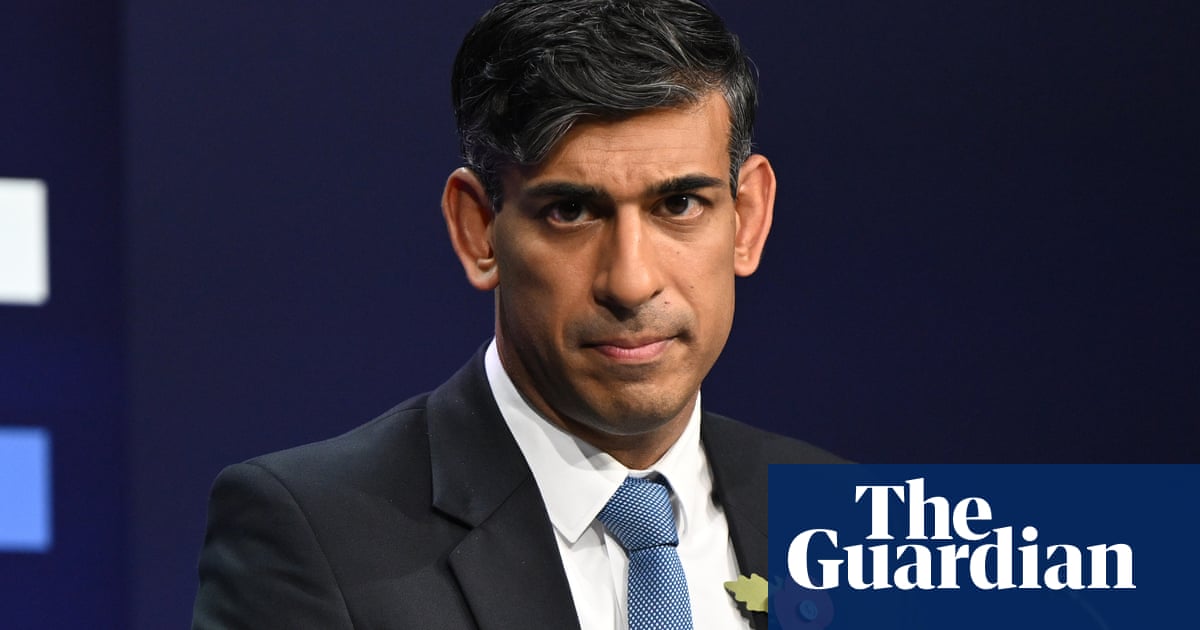
Exhausted by scandals, deflated by byelection defeats and uninspired by their leader at Conservative party conference, many of Rishi Sunak’s MPs are not looking forward to the next year in politics. “It’s hard to muster the enthusiasm to come out fighting given everything that has happened,” said one Tory adviser.
But Sunak appears still to be energised by the prospect of governing for at least another 12 months – and has explicitly said he wants to get things done in the next year. “What can a country achieve in 52 weeks? Watch this space,” his new promotional video said this week.
The king’s speech and autumn statement provide two pivotal points to conjure the mood for the year ahead. Sunak will attempt to set the narrative for the next election, picking out key themes and drawing dividing lines between the Tories and Labour.
“Think long-term decisions, stuff that politicians have ducked. We will grip and take long-term decisions to put Britain on a better course,” says one Downing Street insider.
The problem for Sunak is that politically difficult long-term decisions rarely enthuse an electorate – as Theresa May found to her cost when she attempted to sort out the problem of social care and found herself fighting at the polls against accusations that she wanted to bring in a death tax.
Sunak will also need to save as much money as possible for tax cuts before the election, so the big legislative moves in the king’s speech will need to be inexpensive. And with unhappiness on both the Tory right over tax policy and the Tory centre over his lurch to the right on migration, the whips will want policies that minimise controversy and the threat of rebellions.
Within these constraints, here are some of the areas where Sunak might bring legislation.
Crime and justice
The government sees opportunities to put some distance between itself and Labour on crime, and has been looking at new measures on sentencing. Some significant changes are likely to be making sure rapists serve their full sentence, and that people guilty of the most vicious murders spend their whole lives in prison.
The Tories have long promised new measures to compel convicted criminals to attend court for sentencing if a judge requires it, so those should be included in legislation.
There is also a bill to improve support for victims and reform the parole system, which is likely to be carried over into the next session.
Transport
A transport bill has been promised since the Queen’s speech of 2022 and there is likely to be legislation to deal with driverless cars powered by artificial intelligence. The government is not ready to legislate in relation to AI more broadly, but this will be one of the test areas for new guidance.
Other possible areas for legislation could be the regulation of pedicabs – or rickshaws – and more rules on the use of e-scooters.
It had been expected that a new “great British railways” framework would be created in law, but this is now thought to be achievable without a bill. Legislation could also cover some of the transport projects that Sunak would like to go ahead, using money redirected from the cancelled northern leg of HS2.
Smoking
One of Sunak’s big announcements at the Tory party conference was the raising of the smoking age each year. This is an incredibly popular policy when polled, and the government is likely to want to get on with it. It would also provide Sunak with a definable legacy if he loses the next election as expected – being the prime minister who closed the door on smoking for future generations.
Banning conversion therapy
This bill to ban conversion practices does not tick the box of being uncontroversial. It has long been promised, but held up over wrangling over whether it infringes religious freedom and whether it should apply only to gay or trans conversion practices. It may or may not be included – but LBTQ+ Tories have made it very clear they want to see it become law.
Housing
Another area that firmly falls into the difficult category. Michael Gove’s renters reform bill only just got its second reading, allowing it to be carried over into the next session, but a number of MP landlords are unhappy about an end to no-fault evictions. This element appears to have been delayed, but the moves to protect renters are still on the table.
Second, Gove promised in February that the government wanted to “fundamentally reform the system” of leasehold, saying people were “held to ransom by freeholders” in a “feudal form of tenure”. That would be a big and tricky piece of legislation to get done in a year, but Rachel Maclean, the housing minister, said in September she was feeling positive about it making the legislative programme.
Thirdly, there is the issue of scrapping nutrient neutrality rules, aimed at saving England’s rivers from saturation with nitrates and phosphates, but which housebuilders say have hindered efforts at building new homes. It now appears unlikely that this will appear as primary legislation in the king’s speech, but there could be another legislative vehicle to scrap the rules.
Mental health
Campaigners have been waiting a long time for an overhaul of mental healthcare, ever since the publication of a white paper in 2021 set out how to improve the rights and treatment of people with mental illness, learning disability and autism. A draft bill has been published and is subject to scrutiny, but the government is yet to formally respond. It is not yet clear whether the government will include it, but there have been reports that it will be dropped to make way for other priorities.
Anti-boycotts bill
The government is likely to carry over the economic activity of public bodies bill, which is essentially legislation to stop local councils deciding to boycott procurement from Israel. Amnesty has said it considers banning “ethical procurement” to be draconian, while some Tory MPs have also warned that it could damage community cohesion at a time of inflamed tensions over Israel’s war in Gaza.
Other areas
Two bills are expected to be carried over covering reform of markets: the data protection and digital information bill, and the digital markets bill. Another bill that might be carried over is the holocaust memorial bill, which would legislate for the creation of a permanent holocaust memorial in Westminster.
Other draft bills are a media bill reforming public service broadcasting and an anti-terrorism bill, known as Martyn’s law after one of the victims of the Manchester Arena bombing, which would require publicly accessible buildings to take steps to reduce the risk of terror attacks. There is also a case for a technical bill allowing for the UK to accede to the Transpacific Trade Partnership.












